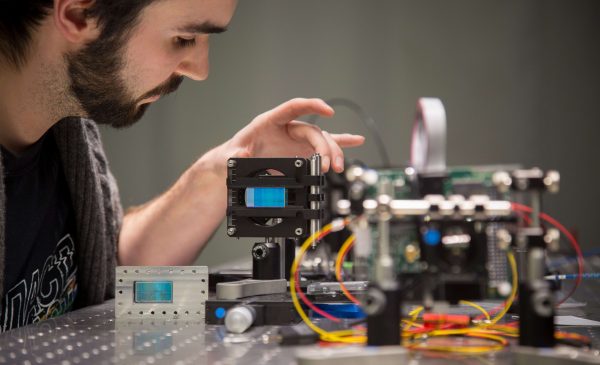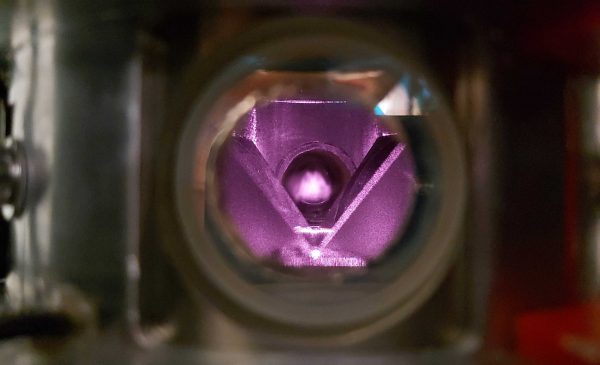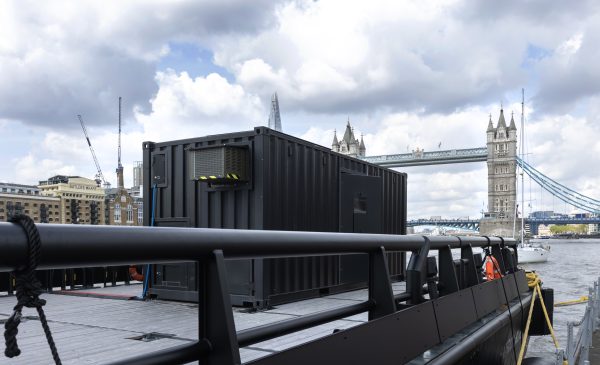A new wave of funding has been announced by the Government for research into quantum technologies. The Treasury has today committed £94 million to the National Quantum Technologies Programme, which comprises four Quantum Technology Hubs across the UK.
The announcement means that the UK Quantum Technology Hub Sensors and Timing, led by the University of Birmingham, will receive £23.5m to continue the drive to develop real world applications by harnessing the power of quantum physics. These will have significant impact in sectors important to the UK.
UK Research and Innovation’s Chief Executive, Professor Sir Mark Walport, said: “The UK is leading the field in developing Quantum Technologies and this new investment will help us make the next leap forward in the drive to link discoveries to innovative applications. UKRI is committed to ensuring the best research and researchers are supported in this area.”
In response to the funding announcement, Professor Kai Bongs, Principle Investigator for the UK Quantum Technology Hub Sensors and Timing, said:
“We are delighted that the government is maintaining its commitment to the exploitation of quantum technology in the UK. This new funding will build on the enormous momentum we have already created.
“Our Birmingham-led Hub for Sensors and Timing will be focusing on applications in Geo-Physics, Navigation, Brain Imaging and Precision Timing, each of which has the potential to create significant economic and societal benefit.”
Dr Simon Bennett, Director of the UK Quantum Technology Hub Sensors and Timing, stated:
“We have forged strong links with key industry companies in order to develop quantum sensors in a commercial environment. Our aim has always been to merge academic expertise and industry experience to create ground-breaking, disruptive technology, and this will be carried through into Phase II of the UK Quantum Technology Hub Sensors and Timing.”
The Hub’s research and development covers a large range of sectors, from healthcare to civil engineering. Academics from the University of Nottingham, one of the Hub’s partner Universities, are enabling non-invasive brain scanning, using a new type of brain scanner which uses ‘quantum’ sensors that measure the tiny magnetic fields produced by brain function, a process known as magnetoencephalography (or MEG for short). It enables an effective measure of brain activity as our brains undertake mental tasks. The light-weight nature of the new scanner also means that, for the first time, subjects can move their heads during the scanning.
Developing smaller, portable and more robust technology is one of the key aims of the UK Quantum Technology Hub Sensors and Timing. Research into the core science behind the technologies – the underpinning technologies – is being carried out by colleagues at the University of Glasgow, a partner institution. The long-term aim is to develop single-chip cold atom modules, so that all developed components are integrated onto one silicon chip.
Our world is highly dependent on precise navigation. Although originally developed for defence, our civil infrastructure is critically reliant on GNSS. The ability to fix one’s location underground, underwater, inside buildings or when satellite signals are deliberately disrupted can be greatly enhanced using QT sensing. Making Inertial Navigation Systems more robust and adding novel techniques such as map matching will alleviate many of these problems.
Civil engineering is another significant area that will benefit from the implementation of quantum sensors. Currently, it is difficult to detect buried infrastructure, such as pipelines, and even large scale hazards such as sinkhole and mineshafts. This can prove to be a hurdle in the civil engineering sector, particularly when building upon land on which the underground conditions are unknown, or when carrying out road works when the pipe mapping is unclear. The implications of this uncertainty is not just financial; it is also life-threatening.
Dr Michael Holynski, lead for gravity sensor research at the UK Quantum Technology Hub Sensors and Timing, and his team work in close collaboration with industry to develop gravity sensors.
“These sensors aim to help us to better see into the underground space, for example revealing buried infrastructure or hidden hazards while also providing new tools for resilient navigation,” explains Dr Holynski. The UK Quantum Technology Hub Sensors and Timing is also working with academics, such as Dr Nicole Metje, Professor of Infrastructure Monitoring, from the National Buried Infrastructure Facility, part of the UK Collaboratorium for Research on Infrastructure and Cities (UKCRIC). The Facility aims to allow researchers to develop and test new quantum sensing technologies, which will help to further knowledge of underground infrastructure.
The UK Quantum Technology Hub Sensors and Timing, a collaboration between teams at the Universities of Birmingham, Glasgow, Imperial, Nottingham, Southampton, Strathclyde and Sussex, the British Geological Survey and over 200 participating industry partners, such as the National Physical Laboratory and Teledyne e2v, will deliver further research aimed directly at exploitation of the technology. Particular areas of focus will be magnetometry, geophysics, navigation, timing and underpinning technology aimed at reducing the size, weight power and cost of future sensor systems.





